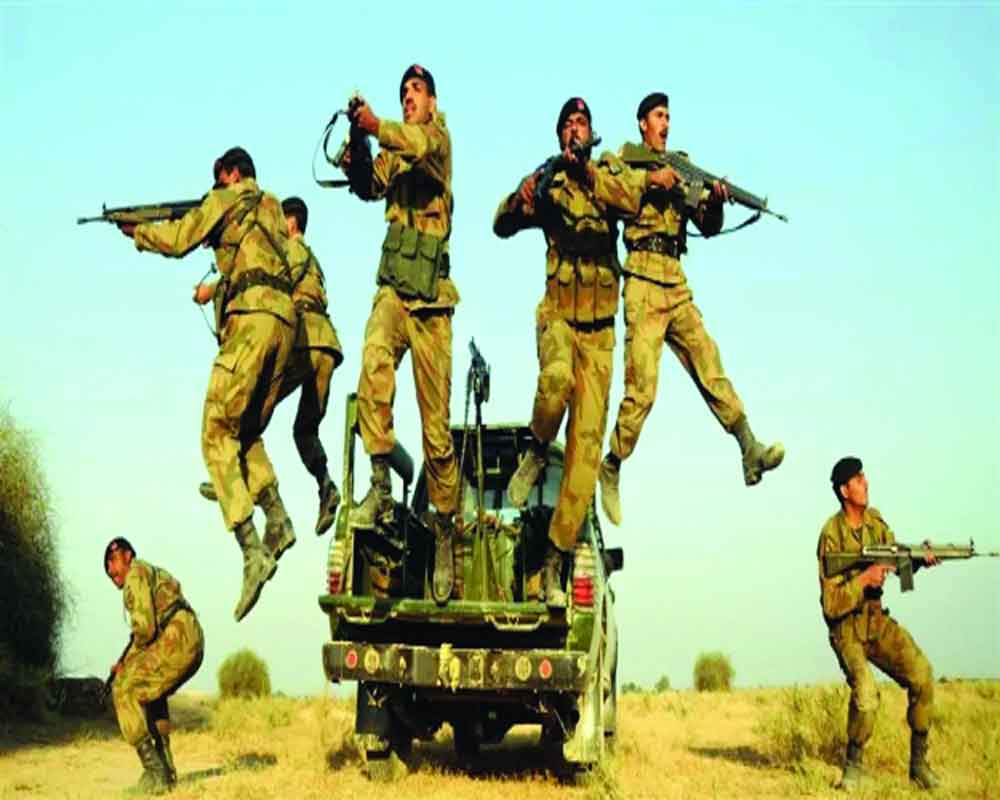Ambassador Asif Durrani acknowledges the Pak Government’s shortcomings in handling the Afghanistan situation and underscores a reality check for Islamabad’s foreign policy
Pakistan’s Special Representative on Afghanistan, Ambassador Asif Durrani, conceded the grave reality of the Pakistani Government’s abject failure in Afghanistan. Speaking at a conference titled, “Pakistan in the Emerging Geopolitical Landscape”, the diplomat accepted that the ensuing price of the flared tensions along the Durand Line far exceeded the human and financial cost of all the wars with India, put together!
Cold and frightening statistics like the loss of over 80,000 lives in the so-called ‘War on Terror’ which Islamabad joined in 2001 (including 8000 security personnel) and an estimated economic loss of $150 billion-the reality check of what ought to worry Pakistan, i.e., between its traditional enemy across the Line-of-Control, or the one across the Durand Line-couldn’t have been clearer. To make matters worse for Islamabad, it isn’t even close to the end of its miseries as the deadly attacks by Tehreek-e-Taliban Pakistan (TTP) have shot up by 65% and the accompanying suicide attacks by 500%! In such a scenario to persist with India as the ‘enemy number 1’ is not only to suffer from an acute sense of Ostrich syndrome, but also to refuse the hard lessons of Karma i.e., what goes around, comes around.
The fixation with India owes itself to the wounds of the partition and the desperate need of various institutions to have an ‘enemy’ to legitimise themselves in the eyes of the citizenry e.g., clergy, military, politicians etc., as also, as to defend the flawed ‘two-nation theory’ that ostensibly rationalises Pakistan. The creation of Bangladesh in 1971 exposed the hollowness and amorality of a nation created in the name of religion - the current equation with Afghanistan further exposes the untenability of a relationship based on co-religionism. That religion can never be the basis of nationhood or indeed ensure a ‘brotherly relation’ (as insincerely claimed) with a neighbour, is further proved. At the end of the day, what matters is, ‘intent’ or neat. Over time, intent has an inevitable way of revealing itself that cannot be suppressed by homilies of co-religiousity.
As the speech by Ambassador Durrani accepted, “After the withdrawal of NATO forces, it was hoped that peace in Afghanistan would bring peace to the region. However, such expectations were short-lived”. Anyone with a modicum of understanding about history (especially about Afghanistan, the home to many ‘Great Games’) ought to have known that to ‘control’ the narrative in Afghanistan was not just impossible and impractical, but also counterproductive. The worst-kept secret of nurturing a desire to have ‘Strategic Depth’ in Afghanistan could not be hidden even from its creation, the Afghan Taliban. While the Afghans had accepted the support and infrastructure afforded by Pakistani regimes of all hues and shades since the late 1970’s — to expect the proud Afghan (even a Pak-created Taliban) to toe Islamabad’s line blindly was an affront to the cultural-civilisational identity of an Afghan. Not only did the Taliban Government bolt out from the shackles of controls, ‘advisories’ and condescending platitudes from Islamabad, but it knowingly harboured and supported its ideological offshoot i.e., the Pak-facing Tehreek-e-Taliban Pakistan (TTP) fighters, who attack Pakistan with impunity and deadly consequences.
A grim observation of the situation suggests that the attacks on Pakistan are not just a phenomenon afflicting disaffected Pakistani folks across the Afghan side, but that the “worrying aspect is the participation of Afghan nationals in these attacks”. Basically, either as genuinely motivated or even as trained mercenaries, Afghan nationals are attacking Pakistan! The project of demonising India by the Pakistanis has failed spectacularly amongst the conservative Afghans, as even they harbour a rather warm perception of the Indians, as opposed to that of the Pakistanis. At the end of the day, the difference in sovereign intent emanating from Islamabad, versus those emanating from Delhi, has surfaced. Beyond certain constraints mandated by their self-invested image, ideology and inert conservativism, the language used by the Taliban Government officials bears a stark contrast, from the one that was imagined when the US/NATO forces abandoned Kabul and the Taliban stormed into Kabul.
Today, given the ‘dark’ investments made by the Pakistani State it finds itself in an awkward and inextricable position. Try hard as it might, the Pakistanis are struggling to undo and trace back the steps that it took to create the prevailing environment, infrastructure and instinct in the region. As Ambassador Durrani lamented, “Afghanistan has become a permanent fixture in Pakistan’s regional paradigm for over four decades”. Therefore, all support or otherwise to Pakistan is seen from the lens of Afghanistan. Ironically, Pakistani complaints about the situation with Afghanistan fall on deaf ears as the global community attributes much of what went wrong with the Afghan storyline, to the Pakistanis themselves. In some sense, it is a ‘cry wolf’ situation for the Pakistanis and there simply aren’t too many takers or sympathisers of the Pakistani woes. A deeper introspection would reveal the rot in the thinking of the Pakistani system set in 1947 when it thought that religion was to be its trump card. History is instructive, that religion can never be a basis of Statehood for any moral and sustainable nation. Both Bangladesh and Afghanistan discredit the ‘two-nation theory’
(The writer, a military veteran, is a former Lt Governor of Andaman & Nicobar Islands and Puducherry. The views expressed are personal)


























